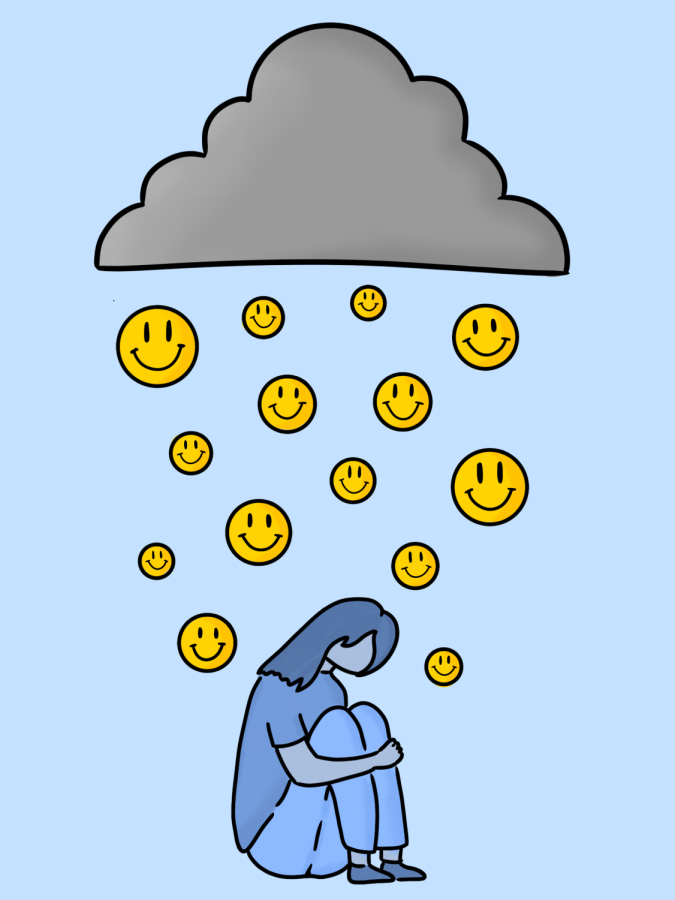OPINION: Toxic positivity encourages unrealistic expectations
Toxic positivity can create unrealistic optimism and undermine negative emotions.
Positivity is a great practice until it goes too far, causing people to suppress other emotions due to guilt that they are not being positive. This mindset is called toxic positivity and takes optimism to the extremes, often undermining negative feelings with the determination to be happy no matter what.
Happiness is an ideal, not a constant reality. The human experience requires a range of emotions. People will experience moments of happiness and excitement, but feelings of sadness, anger or disappointment are also unavoidable. According to The Psychology Group, toxic positivity is described as the excessive and ineffective overgeneralization of a happy, optimistic state across all situations. Toxic positivity is everywhere from “Be happy” T-shirts to “Good vibes only” posters. While these might seem like good sentiments, they only reinforce the idea that constant happiness is a realistic lifestyle. What these sayings fail to acknowledge is that in order to be happy, one first needs to appropriately process negative emotions. Negative emotions are inevitable, so dealing with them effectively will lead to a happier life.
Not only can a toxically positive mindset diminish one’s own mental health, but it can also undermine the feelings of others. Confiding in people when one is going through trying times is difficult. Listening to and understanding the feelings of loved ones is much better than telling them to look on the bright side.
Kendra Cherry, a psychosocial rehabilitation specialist and author of “Everything Psychology Book,” 2nd Edition, explains that toxically positive statements can often leave people feeling dismissed or misunderstood. Even though positive sentiments may seem like helpful encouragement, they can also invalidate the feelings of others, or make them feel like they are being unreasonable, overly emotional or dramatic. Offering loved ones support and understanding in difficult times will leave them feeling more supported and validated.
Beyond hindering the mental health of oneself and others, toxic positivity can also create environments that do not encourage productivity and creativity. In order to learn and grow, frustration, disappointment and stress are often required. Environments that do not allow mistakes and failure are ones that stifle creativity. According to writer Anima Sahu from Entrepreneur, in spaces where being negative or critical is not acceptable, important problems can go unattended because people will not feel comfortable speaking up and sharing negative sentiments. Environments that allow people to make mistakes and even fail will ultimately lead to more growth and productivity.
Distinguishing between optimism and toxic positivity can be hard, so recognizing there is a difference is important. Optimism is an amazing tool that can be used to work through difficult situations. The most important difference between the two is that while an optimist recognizes a problem at hand and tries to create a solution, a toxically positive person will have trouble acknowledging the problem in the first place. Positivity is all about seeing only the good in bad situations.
The ability to look beyond an impersonal toxically positive mindset is not always natural or easy. Actively listening to someone takes more time and effort than being more dismissive of their thoughts and feelings. Making a conscious effort to make loved ones feel seen and heard is the kind and helpful choice. Even though toxically positive mindsets are common, working to create change in oneself is necessary for the betterment of society.


